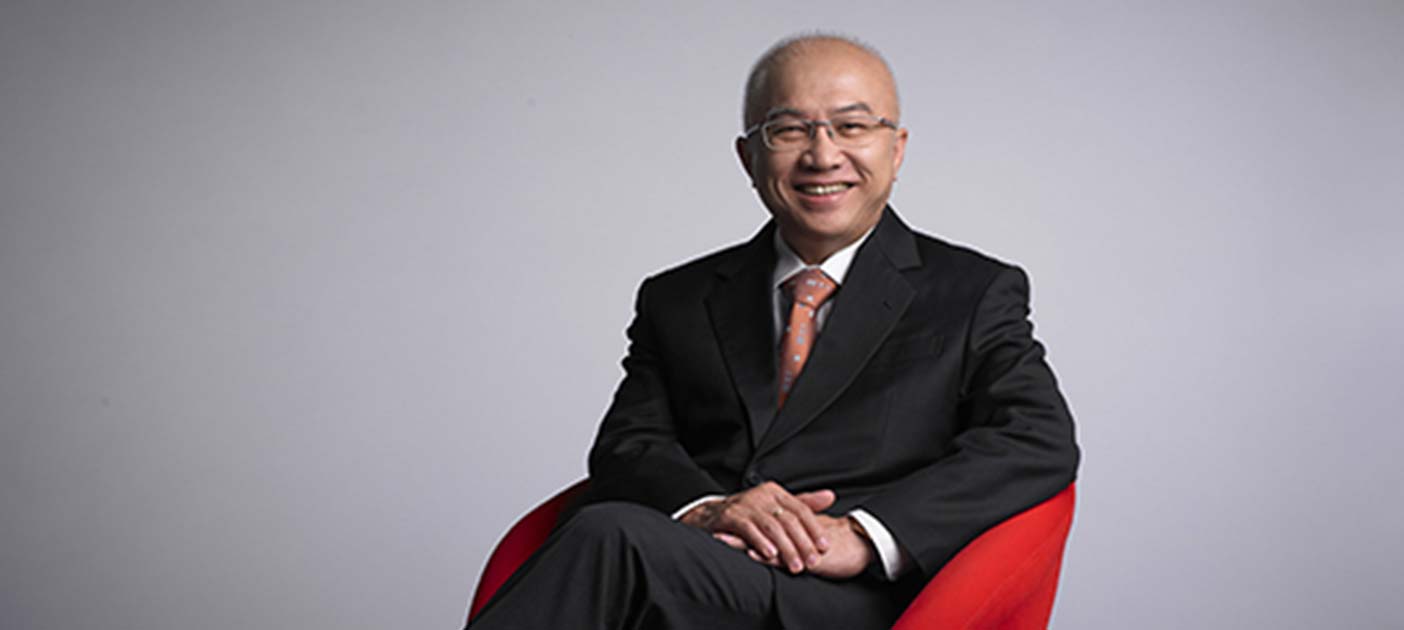Beating The Queues With Technology
Food court operator Koufu is boosting productivity and convenience for its customers by adopting digital solutions.

Starting as a kitchen helper at the age of 13, Mr Pang Lim has had a long and fascinating journey in the food and beverage (F&B) industry that still continues today.
For five years he sold fruit at Sungei Road's famed Thieves Market in the 1970s, and later ran a Nasi Lemak stall at a coffee shop. In 1990, together with some family members he opened his own coffee shop, which marked the genesis of the Koufu brand.
Today, Koufu runs a successful chain of over 50 food courts, coffee shops and restaurants across Singapore, including an outlet at Marina Bay Sands that sells hawker food. In 2012, it opened its first food court overseas in the Sands Cotai in Macau.
"In just 15 years, Koufu has expanded its business profile from neighbourhood coffee shops to establishing large-scale modern food courts in residential as well as commercial shopping malls," says Mr Pang, 62.
Along the way, the F&B veteran has had to overcome numerous challenges, including a shortage of manpower and the need to constantly adapt to a changing environment. "I believe in continuous learning and the importance of change so that the team can keep up the pace in the fast moving environment," he says.
On the fast track
To tackle high operating costs and a persistent labour shortage, Mr Pang turned to technology and automation to boost the company's productivity and keep a lid of costs. So he adopted DBS FasTrack, a solution jointly developed by DBS and Applied Mesh. It provides a seamless ‘self-service’ ordering and payments solution, allowing users beat the queues at Koufu eateries by letting them order ahead, pay with a DBS/POSB credit or debit card, or mobile wallet DBS PayLah!, and collect their food when notified – all via a customised app.
Said Mr Jeremy Soo, Managing Director and Head of Consumer Banking Group (Singapore), DBS Bank, “DBS FasTrack works because it benefits both the business and its customers. Businesses save costs and customers no longer need to queue for meals. It’s designed to be easy to use and completely intuitive, and it was very exciting for us when DBS FasTrack went ‘live’ in Koufu’s foodcourt. It was a Singapore first, being able to pre-order and pay for foodcourt meals with an app.”
To ensure that app would work in a food court environment, the DBS FasTrack team spent several days at Koufu outlets to observe their customers’ behavior and understand the stall vendors’ operations.
"Old habits die hard, Singaporeans are so used to queuing and the stall vendors love queues because it means that their food is good," said DBS Vice President for Digital/Emerging Payments, Cards and Unsecured loans, Paul Bedi.
"Our customer immersion helped. We interviewed and engaged with both customers and stall vendors. With the help of our Customer Experience team, we created a seamless journey for both customers and stall owners."
Having overcome the initial resistance, Koufu is now reaping dividends from adopting the solution. The company has seen the number of downloads of the app increase steadily month-on-month. More importantly, it has seen sales increase for the first four outlets in the pilot phase.
Mr Pang is now exploring other tech solutions to help his business, such as a smart tray return robot, a self-ordering kiosk, as well as kitchen automation. He advises other business owners to always keep the customer in mind when looking to adopt new technology. "We like to use technology that is user-friendly and convenient and yet enhances the dining experience for our valued customers."
Was this information useful?
Thanks for your feedback
Subscribe to DBS BusinessClass
Stay updated with the latest market trends and industry insights, connect with a network of entrepreneurs, and gain access to exclusive event invitations. Join Asia's fastest growing business community – get your complimentary membership here.





That's great to hear. Anything you'd like to add?
We're sorry to hear that. How can we do better?